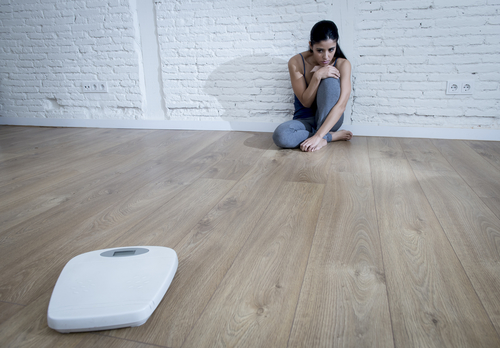Leaving the structured environment of an addiction rehab to return home can be both exciting and overwhelming. While you may feel eager to be independent, maintaining sobriety outside of a controlled setting comes with unique challenges. The transition from rehab to home requires careful planning to prevent relapse and build a strong support system.
Understanding the role of aftercare, joining sober support groups, and mastering relapse prevention strategies are key to thriving after rehab. At Casa Capri Recovery, our team helps women build a thorough aftercare plan that supports long-term recovery, fostering healthier habits and overall well-being. If you’re ready to take the next step, reach out to us to learn more.
Next Steps
If you’re struggling with addiction, you don’t have to face it alone. At Casa Capri, we offer expert, women-centered care in a supportive and nurturing space—designed by women, for women. Our team is here to help you heal with purpose and connection.
Call our admissions team for a free, confidential chat—we’ll even check your insurance and estimate any costs upfront.
Making a Plan to Avoid Relapse
A successful transition from rehab to home starts with a solid relapse prevention plan. Here’s how to set yourself up for long-term sobriety:
Identifying Triggers
Understanding the emotions, settings, or types of people that could tempt you to use substances again is crucial. Common triggers include stress, social pressures, and situations in which you previously used substances.
Developing Coping Strategies
Healthy coping mechanisms can help you manage cravings and stress. These may include mindfulness techniques, exercise, journaling, or engaging in hobbies that bring you joy and fulfillment.
Setting Boundaries
Establishing clear boundaries with people who may not support your sobriety is important. Making an effort to surround yourself with those who respect your recovery journey can make a significant difference.
Types of Sober Support Groups to Join
Sober support groups provide community, accountability, and encouragement throughout your recovery. Here are some options:
- Alcoholics Anonymous (AA): A 12-step program offering peer support, accountability, and a structured approach to maintaining sobriety.
- Narcotics Anonymous (NA): Similar to AA but designed for individuals recovering from drug addiction, NA provides guidance and a supportive network.
- SMART Recovery: A science-based program focusing on self-empowerment and practical strategies for staying sober.
- Women for Sobriety (WFS): A recovery group tailored for women, emphasizing emotional and spiritual growth.
- Celebrate Recovery: A Christian-based program integrating faith and recovery principles to support sobriety.
What Life Looks Like After Rehab
Life after rehab is an adjustment period that requires patience and commitment. You may experience a mix of emotions, from excitement about a fresh start to anxiety about maintaining sobriety. Daily routines, responsibilities, and social interactions will need to be managed carefully to support your recovery.
Many people benefit from structured schedules, therapy, and involvement in ongoing sober support groups. It’s also important to embrace new hobbies, find healthy ways to manage stress, and stay connected with loved ones who support your journey.

What is a Sober Living Environment?
A sober living environment is a transitional housing option that provides a structured, drug-free setting for individuals recovering from substance use disorder. These homes offer accountability and peer support. They often require adherence to house rules, including curfews and regular drug testing.
Sober living homes can be an excellent option for those who need additional stability before fully returning to independent living. They help bridge the gap between rehab and home life by reinforcing positive habits and recovery-oriented routines.
What if I Relapse After Treatment?
Relapse does not mean failure—it’s a common part of the recovery process. If you relapse, it’s crucial to seek support immediately. Reach out to your therapist, support group, or sponsor, and reevaluate your relapse prevention plan.
Casa Capri Recovery offers resources to help you get back on track. With professional guidance and renewed commitment, you can regain control and continue your sobriety journey.
Ways to Transition Home from Rehab
1. Establish a Structured Routine
A daily schedule provides stability and prevents feelings of aimlessness, reducing the risk of relapse.
2. Stay Connected with a Support System
Maintaining regular contact with sober support groups, therapists, and trusted friends can provide encouragement and accountability. Surrounding yourself with people who want to see you succeed can keep you on track when you experience temptation.
3. Continue Aftercare Treatment
Engaging in therapy, outpatient programs, or aftercare planning can help reinforce the skills learned in rehab. Learn more about aftercare planning and treatment.
4. Avoid High-Risk Situations
Steering clear of environments or people associated with past substance use is essential in early recovery.
5. Prioritize Self-Care
Exercise, healthy eating, and mindfulness practices can contribute to emotional well-being and support sobriety as part of your rehab aftercare plan.

If you’re navigating the transition from rehab to home, Casa Capri Recovery is here for you. Our team offers tailored rehab aftercare support, ensuring you have the resources you need for lasting sobriety. Contact us today to take the next step toward a healthier, sober future.
Next Steps
If you’re struggling with addiction, you don’t have to face it alone. At Casa Capri, we offer expert, women-centered care in a supportive and nurturing space—designed by women, for women. Our team is here to help you heal with purpose and connection.
Call our admissions team for a free, confidential chat—we’ll even check your insurance and estimate any costs upfront.
FAQs About Rehab Aftercare
Where do people go after inpatient rehab?
Some individuals transition to outpatient programs and sober living homes, or some return home with a structured rehab aftercare plan.
What are the criteria for discharge from rehab?
Discharge criteria often include medical stability, completion of treatment goals, and a solid aftercare plan in place.
How can I support a loved one after rehab?
Encourage open communication, attend support groups together, and create a sober-friendly environment at home.
How can I support a loved one after rehab?
Encourage open communication, attend support groups together, and create a sober-friendly environment at home.
What should I do if my loved one relapses?
Offer support without judgment, encourage them to seek professional help, and remind them that recovery is a lifelong process and you are there for them.
Is relapse a normal part of recovery?
Yes, many people experience relapse, but it’s an opportunity to learn and strengthen recovery strategies and get additional support.
How long does aftercare treatment last?
Aftercare can last a few months to several years. The length of aftercare treatment depends on each individual’s needs and recovery progress.
Can I still work while in recovery?
Yes, many people keep working while in recovery, often with some lifestyle adjustments to manage stress and addiction triggers.
What is the best way to stay sober long-term?
Consistent therapy, support groups, healthy routines, and self-care contribute to long-term sobriety.
Are there specific support groups for women?
Yes, groups like Women for Sobriety (WFS) offer tailored recovery support for women. Call our team at Casa Capri Recovery and take your next step toward a healthier, sober life.



